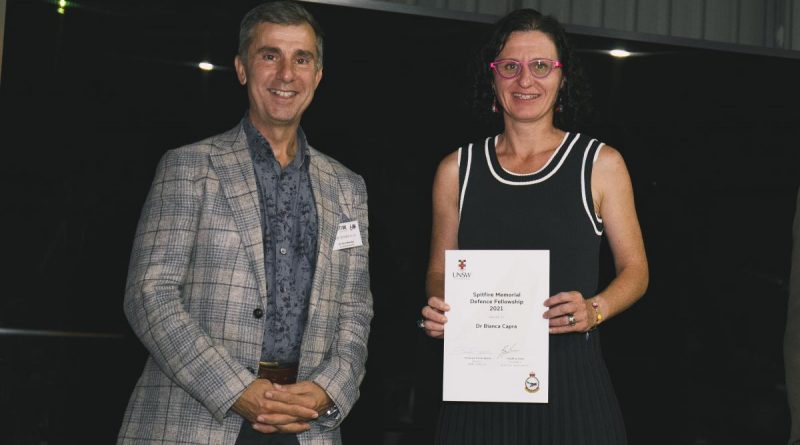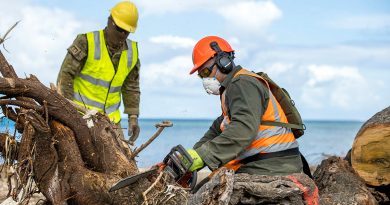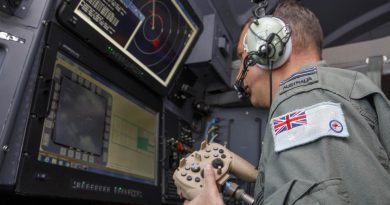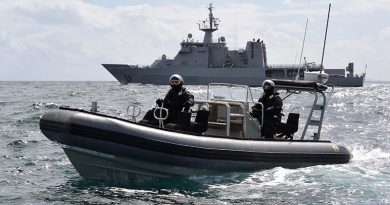The spirit of the Spitfire lives on

The Spitfire was cutting-edge technology for its day, and now that legacy continues to fuel the next generation of innovation through the Spitfire Memorial Defence Fellowship, awarded by the Spitfire Association.
CAPTION: Air Commander Australia Air Vice-Marshal Joe Iervasi presents a certificate to Dr Bianca Capra as the Spitfire Memorial Defence Fellowship 2021 recipient during the 60th anniversary of the Spitfire Association. Story by Flight Lieutenant Dion Isaacson. Photo by Sergeant Oliver Carter.
The association recently held its 60th-year commemorative dinner at the Temora Aviation Museum, and while it honours the men and women who flew the iconic aircraft, eyes were firmly on the future.
Since 1998, the association has awarded fellowships to distinguished scientists, researchers and engineers whose work aids in the security and defence of Australia.
Fellowship recipient Bianca Capra from the University of NSW is pioneering research into hypersonics. She said it was an exciting field, but that it posed really hard challenges.
“At the core of my research is extending our knowledge on thermally stressed and very hot structures, flying in excess of four times the speed of sound,” Dr Capra said.
“This fellowship allows me to advance my research, understanding how to design hypersonic vehicles to remain structurally sound during normal flight and extending our vehicle designs to better defend against attack.”

CAPTION: A Supermarine Spitfire fighter aircraft taxies during an event marking the 60th anniversary of the Spitfire Association at the Temora Aviation Museum. Photo by Sergeant Oliver Carter.
President of the Spitfire Association Geoff Zuber said Dr Capra’s project typified the association’s motto of ‘Carry the Spirit Forward’.
“The fellowship was conceived by veteran Spitfire pilots of No. 457 Squadron RAAF, as a living memorial rather than a traditional granite and bronze monument,” Mr Zuber said.
“It will enable Dr Capra and her team to develop a ‘hypersonic tree’ of knowledge and research.
“It is another demonstration of how the Spitfire Association contributes to Australian sovereign capabilities and the defence of Australia.”
Also receiving a fellowship on the night was Frank Marino of Charles Sturt University.
In his second fellowship with the association, he continues work researching the effect of hydration on performance of troops in conflict.
“For me, the fellowship is a very personal contribution to Australia,” Professor Marino said.
“My work is primarily focused on infantry and the effects of heat stress, hydration, and their ability to successfully carry out operations when engaging hostile forces.”
.
.

.
.





